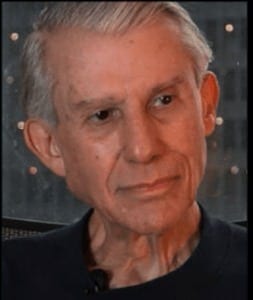627
 STEPHEN LENDMAN was born in 1934 in Boston, MA. In 1956, he received a BA from Harvard University. Two years of US Army service followed, then an MBA from the Wharton School at the University of Pennsylvania in 1960. After working seven years as a marketing research analyst, he joined the Lendman Group family business in 1967. He remained there until retiring at year end 1999. Writing on major world and national issues began in summer 2005. In early 2007, radio hosting followed. Lendman now hosts the Progressive Radio News Hour on the Progressive Radio Network three times weekly. Distinguished guests are featured. Listen live or archived. Major world and national issues are discussed. Lendman is a 2008 Project Censored winner and 2011 Mexican Journalists Club international journalism award recipient. His new site is at http://stephenlendman.org
STEPHEN LENDMAN was born in 1934 in Boston, MA. In 1956, he received a BA from Harvard University. Two years of US Army service followed, then an MBA from the Wharton School at the University of Pennsylvania in 1960. After working seven years as a marketing research analyst, he joined the Lendman Group family business in 1967. He remained there until retiring at year end 1999. Writing on major world and national issues began in summer 2005. In early 2007, radio hosting followed. Lendman now hosts the Progressive Radio News Hour on the Progressive Radio Network three times weekly. Distinguished guests are featured. Listen live or archived. Major world and national issues are discussed. Lendman is a 2008 Project Censored winner and 2011 Mexican Journalists Club international journalism award recipient. His new site is at http://stephenlendman.org
ABOUT THE AUTHOR
 STEPHEN LENDMAN was born in 1934 in Boston, MA. In 1956, he received a BA from Harvard University. Two years of US Army service followed, then an MBA from the Wharton School at the University of Pennsylvania in 1960. After working seven years as a marketing research analyst, he joined the Lendman Group family business in 1967. He remained there until retiring at year end 1999. Writing on major world and national issues began in summer 2005. In early 2007, radio hosting followed. Lendman now hosts the Progressive Radio News Hour on the Progressive Radio Network three times weekly. Distinguished guests are featured. Listen live or archived. Major world and national issues are discussed. Lendman is a 2008 Project Censored winner and 2011 Mexican Journalists Club international journalism award recipient. His new site is at http://stephenlendman.org
STEPHEN LENDMAN was born in 1934 in Boston, MA. In 1956, he received a BA from Harvard University. Two years of US Army service followed, then an MBA from the Wharton School at the University of Pennsylvania in 1960. After working seven years as a marketing research analyst, he joined the Lendman Group family business in 1967. He remained there until retiring at year end 1999. Writing on major world and national issues began in summer 2005. In early 2007, radio hosting followed. Lendman now hosts the Progressive Radio News Hour on the Progressive Radio Network three times weekly. Distinguished guests are featured. Listen live or archived. Major world and national issues are discussed. Lendman is a 2008 Project Censored winner and 2011 Mexican Journalists Club international journalism award recipient. His new site is at http://stephenlendman.orgS. LENDMAN—Virtually the entire US Senate (a millionaire’s club) and most House members were chosen by powerful interest groups. Candidates representing ordinary people have no chance to become president or hold a leadership congressional position. The same holds for states and cities. Rare exceptions prove the rule.








You nailed it. The only point I would add is the question about how we would define “ordinary people” today, when the “masses” are so deeply divided — middle class vs. poor, workers vs. their “brothers and sisters” who were already phased out of the job market as the US shipped out millions of jobs. But that’s another discussion for another day.
As usual, Lendman is a straight-shooter, a no-nonsense guy who calls it like it is: adeptly and cogently.
Herewith, I think he states the gist of his case in the first half of his article; i.e., our “democracy” is “farcical”; America is a “plutocracy,” “money-controlled,” etc.
The second half of this article is mostly a strong case against Roy Moore. All of Mr. Lendman’s points are valid, of course, but they don’t speak to the hypocrisy of the System that he carefully noted before. I do hope he’ll expatiate on that theme in subsequent works of his.